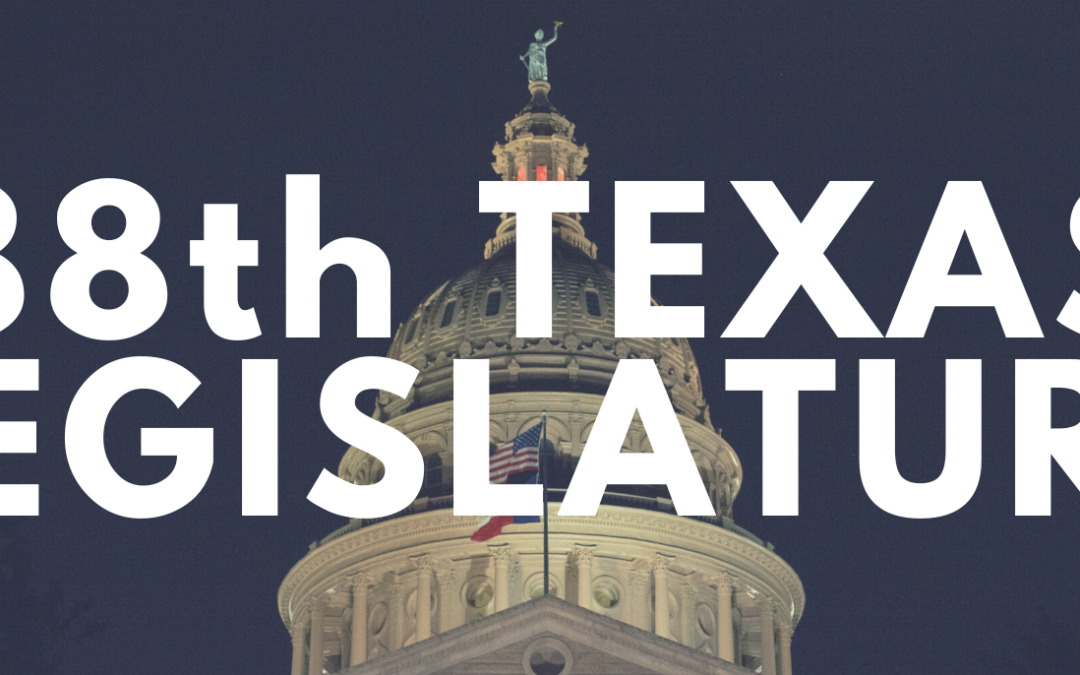The Senate version of SB 30 would allocate tax dollars to retire securitization debt from excess fuel charges incurred by gas utility ratepayers during Winter Storm Uri.
________________________________________________
More than 300 bills have been filed during the 88th Texas Legislature relating to energy issues, including dozens of bills associated with gas utilities and their customers. Although most of these bills will fail (just as most bills fail during all legislative sessions), a handful should make it to the end. The finish line, however, is just weeks away. The 88th Legislature concludes sine die on May 29.
Below we have summarized the status of a few significant bills relating to gas utility issues. We’ll be sure to update this list as the session draws to an end.
- Senate Bill 30, by Joan Huffman, is the supplementary budget bill. The Senate version would allocate $3.9 billion in tax dollars to retire securitization debt that relates to excess fuel charges incurred by gas utility ratepayers during Winter Storm Uri. Without this provision, Texans will be paying extra debt charges in their gas utility bills for years to come. The House version of SB 30 does not include this debt-relief provision. The legislation has gone to a House-Senate conference committee for lawmakers to iron out the differences. A final version of SB 30 is expected to be considered by both chambers in the coming weeks.
- House Bill 2128, by Rep. Ernest Bailes, “relating to the charging of exorbitant or excessive prices for natural gas during a declared disaster,” is intended to limit price gouging on natural gas sales during declared disasters. This is another bill that arose from legislative concerns over high natural gas prices charged by suppliers during Winter Sorm Uri. The House Business and Industry Committee conducted a hearing on HB 2128 on April 17, but the legislation has proceeded no further in the process and likely is dead.
- House Bill 2262, by Rep. Drew Darby, “relating to gas utility alternative gas expenses and infrastructure investments,” would allow gas utilities to include “alternative gas” in their portfolios and recover the costs of purchasing it. HB 2262 also provides for a presumption that alternative gas costs included in rates are prudent, reasonable, and necessary. The bill defines “alternative gas” as fuel with a lower carbon content than natural gas. HB 2262 has passed out of the Texas House and has been referred to the Senate Committee on Natural Resources. The companion, SB 1049 by Sen. Bryan Hughes, also has been assigned to that committee, but it has not yet received a hearing.
- HB 4788, by Rep. Rafael Anchia, calls for renaming the Texas Railroad Commission the “Texas Energy Resources Commission.” Anchia also filed a version of this bill last session, although it never made it out of committee. HB 4788 appears heading toward the same fate this year. The House Committee on Energy Resources received the bill on March 22, but it never received a hearing and so probably is dead. Similarly, its Senate companion, SB 1701, by Sen. Nathan Johnson, has failed to get any traction.
- SB 1050, by Sen. Bryan Hughes, “relating to the authority of a natural gas local distribution company to offer energy conservation programs,” adds a new subsection to the Gas Utility Regulatory Act that would allow retail gas distribution systems to create energy conservation programs while also creating rules for rate recovery outside a typical ratemaking proceeding. SB 1050 has passed out of the Texas Senate and assigned to the House Committee on Energy Resources. Its companion, HB 2263 by Rep. Drew Darby, has passed out of the House and gone to the Senate, but has not yet been assigned to a Senate committee.

